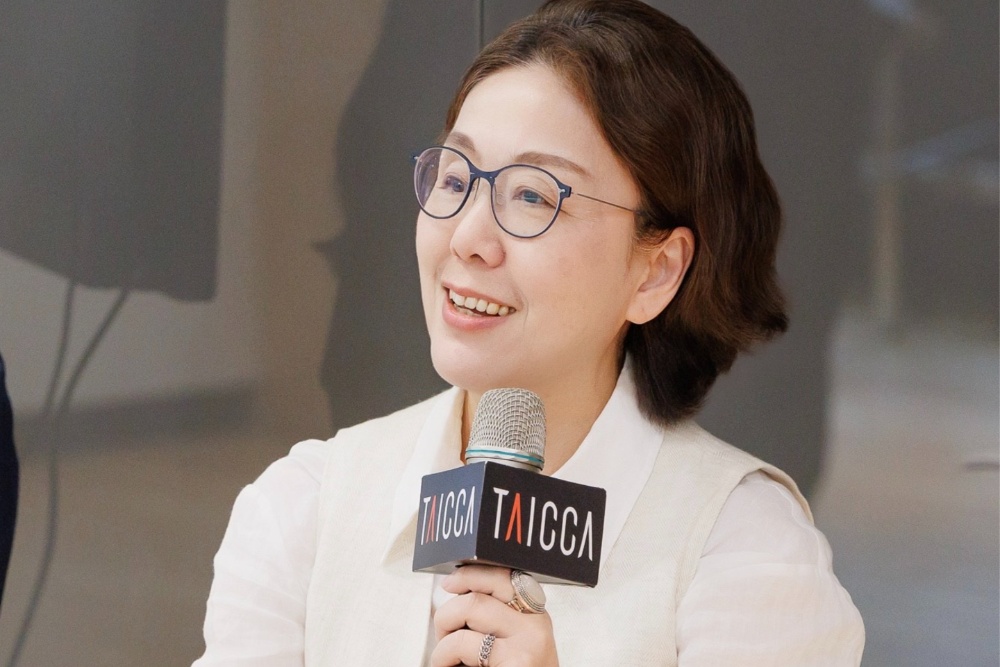Taiwan’s cultural landscape is entering a new era as the Taiwan Creative Content Agency (TAICCA) outlines its strategy to leverage technology in the content industry. At the 2025 Taiwan Creative Content Fest (TCCF), chair Sue Wang presented a forward-looking three-year vision aimed at navigating significant shifts in global entertainment. This initiative focuses on technological innovation, investment expansion, and enhanced collaboration within the industry.
Wang emphasized the importance of positioning Taiwan as a leader during this transformative period. “Taiwan seeks to position itself as a nation that moves ahead of the curve and endures through the transition,” she stated. The strategy is built around three pillars: technological innovation, alignment with ESG (Environmental, Social, and Governance) principles for investment, and strengthening connections throughout the industry value chain.
TCCF has evolved into an influential platform that compresses the traditionally linear content development process. Investors and marketers are now able to engage with projects from their inception, allowing for deeper collaboration. The festival’s pitching sessions cover various categories, including Project and Story tracks, which range from early creative development to award initiatives. “One of the key challenges in the industry today is that marketing and investment considerations must be introduced at the very start of project development,” Wang explained, highlighting TCCF’s role in addressing this gap.
The goal of this collaborative approach is to foster partnerships across Taiwan’s cultural content ecosystem. By connecting creators, marketing teams, production partners, and investors early in the process, TAICCA aims to enhance the potential for successful projects. Drawing inspiration from South Korea’s success in producing culturally specific content, Taiwan is committed to authenticity in its storytelling. “Taiwan recognizes the importance of the principle that ‘the more local, the more global,'” Wang added.
This year, Taiwanese productions have begun to explore themes such as women’s and gender issues, as well as democratization. These topics reflect a growing self-awareness within the island’s creative industries. Taiwan’s unique position as the only nation in Asia where same-sex marriage is legal further enhances its appeal for regional collaborations. “For nations where same-sex marriage has yet to be legalized, collaboration with Taiwan offers the opportunity to work within a freer, more open, and inclusive environment,” Wang noted.
Wang believes that Taiwan’s competitive advantage lies in integrating technology throughout the content creation process. From AI tools and virtual design to cross-platform adaptations and integrated digital marketing, technology serves both as an enabler and a connector. “With Taiwan’s strong technological background and computational capacity, we have the potential to shape an evolving creative ‘format’ — not a fixed formula, but a flexible approach that helps creators imagine and produce in new ways,” she explained.
Productions such as “The Great Tipsy” and “Luda” showcase this innovative approach, serving as exemplars of intellectual property adaptation and the application of emerging technologies. These projects aim to build both investor confidence and creator understanding.
To attract private investment, TAICCA is enhancing its credibility through improved corporate governance and financial management practices within creative enterprises. The agency employs a co-investment model that shares risk with private investors. “By taking on part of the investment risk, TAICCA demonstrates that the government stands together with private enterprises,” Wang stated. This strategy seeks to incentivize participation while strengthening long-term confidence in Taiwan’s cultural content sector.
The agency is actively pursuing co-investment opportunities from domestic and international enterprises, particularly those aligned with private-sector ESG initiatives. This reflects a recognition that the emerging paradigm is favoring capital concentration and large-scale players.
Wang also highlighted Taiwan’s diverse society, which has cultivated a distinctive sense of warmth and empathy in its creative output. This sensibility is evident in the popularity of Taiwanese romantic dramas. “The ‘romance’ portrayed in these stories is not superficial — it stems from an authentic belief in the beauty, kindness, and emotional sincerity of the world,” she explained. “This heartfelt optimism has, in many ways, become part of Taiwan’s cultural DNA.”
The atmosphere at TCCF was described by Wang as vibrant and inclusive. “Investors, creators, and industry partners from across the cultural content sector gathered together in high spirits, faces flushed with excitement, raising their glasses, giving the signature Taiwanese thumbs-up, and leaning in for photos.” For Wang, this image encapsulates the essence of TCCF — a joyful convergence of creativity, collaboration, and shared purpose within Taiwan’s cultural ecosystem.
As the content industry continues to evolve, Taiwan is banking on its combination of technological innovation, cultural authenticity, and collaborative spirit to define its creative brand for the next decade. The TCCF runs from November 4-7, 2025, marking a significant moment for Taiwan’s ambitions in the global content arena.






